Brandy is a centuries-old drink, known since classical times, more popular since the 15th century, but often overlooked these days. Distilled from wine or fruit, expressing the essence of their origins, packed with complex aromas and flavors, brandies are a fascinating category of spirits ripe for exploration.
The best known brandies are from France: Cognac, Armagnac, and Calvados. Their production is closely regulated by French law (isn’t everything?), but the styles are copied by producers around the world. Cognac and Armagnac are distilled from grapes. The famous apples of Normandy are the raw material of Calvados. There are several levels of quality designation including VS (Very Special), VSOP (Very Special Old Pale) and XO (Extra Old). All are aged in oak barrels for increasingly longer times as you go up the quality (and price) scale. Beyond XO there are prestige Cognacs at over-the-top prices with exotic packaging and stories to match. Every grape-growing culture (notably Spain and Italy) has its own version of brandy.
Brandy was a standard item in the liquor cabinet a few generations ago. Although not often seen now, it was an everyday drink and often-used cocktail mixer. In movies of a certain vintage, the traumatized person (finder of the body, victim of a murder attempt, or receiver of bad news) was offered a restorative brandy to help them get a grip, often prescribed by the doctor. Popular brandy cocktails included the Brandy Alexander, Brandy Sling, Metropolitan and Sidecar. My 1959 Old Mr. Boston Bartender’s Guide has 25 recipes for brandy-based cocktails. Brandy is also ideal for deglazing a sauté pan or adding flavor and complexity to almost any dish that calls for wine or spirits.
Fruit brandies (also originating in France) known as Eau-de-vie (Water-of-life) are typically distilled from pears, raspberries, strawberries and cherries. Poire William, Framboise, Fraise and Kirsch are the traditional names for these clear spirits. Unlike grape and apple brandies, they are not aged in oak barrels and so do not get the added color and flavors from the wood. They are deceptively water-clear, making their fruit aromas and flavors all the more surprising. Since no aging is required, fruit brandies are bottled and ready to drink as soon as they are distilled.
My wife is usually not a fan of brandy, finding it to be fiery, alcoholic and unwelcoming, although she admires the aroma. All sophisticated beverages require some effort to get to know and appreciate them. I don’t think anyone ever loved their first taste of beer, wine, scotch, bourbon or even coffee. Like so many worthwhile things that we enjoy every day, brandy takes a little practice.
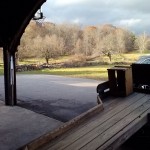 In Connecticut’s quiet corner, Louis and Margaret Chatley have been making fruit brandies at Westford Hill Distilling since 1997. There has been distilling on their 200 acre farm since the mid-1700’s when rough spirits were produced covertly out by the Smugglers Tree to avoid taxes, according to Eric Lehman in his History of Connecticut Food. Today the barn distillery overlooks hay meadows and the rolling hills of the Connecticut’s “Last Green Valley.”
In Connecticut’s quiet corner, Louis and Margaret Chatley have been making fruit brandies at Westford Hill Distilling since 1997. There has been distilling on their 200 acre farm since the mid-1700’s when rough spirits were produced covertly out by the Smugglers Tree to avoid taxes, according to Eric Lehman in his History of Connecticut Food. Today the barn distillery overlooks hay meadows and the rolling hills of the Connecticut’s “Last Green Valley.”
Their award winning Eaux-de-vie are made from fruit fermented and distilled on their 200 acre family farm northeast of Storrs. They ferment fruit at peak ripeness in 1500 gallon tanks. The resulting mash is distilled in their custom made Holstein column still. Sounds easy, but it takes a lot of skill, experience, and hard work. Their fruit brandies are an agricultural product made in season when the fruit ripens – just like wine.
Westford Hill works with Connecticut pears from Lyman Orchards for their Pear William. Brought from the orchard at the peak of ripeness, the pears are hand-sorted, mashed and fermented right away. On a recent visit, the heady aroma of fermenting pears filled Westford Hill’s antique barn. They get their cherries from upstate New York; the raspberries and strawberries are sourced from the lush fruit-growing valleys of the Pacific Northwest.
In addition to the fruit brandies, Louis is exploring other distilled spirits. There is a remarkable Calvados-style Aged Apple Brandy (held for 12 years in French oak barrels) from Macintosh, Jonagold and Melrose apples grown in a Connecticut orchard cultivated since 1741. He has also made Rime Organic Vodka, is aging some bourbon, and next year will plant a field of barley for a single malt whiskey.
For special occasions, Westford Hill has Poire Prisonaire, a Bartlett pear grown inside a heart-shaped bottle then 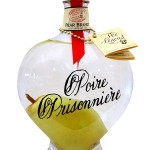 filled with Pear William. As you can imagine, getting the pear in the bottle is a chancey business. The bottles are fastened to the pear branch just after flowering. Each year’s production of this celebratory presentation piece is determined by how many pears are successfully grown in the bottles.
filled with Pear William. As you can imagine, getting the pear in the bottle is a chancey business. The bottles are fastened to the pear branch just after flowering. Each year’s production of this celebratory presentation piece is determined by how many pears are successfully grown in the bottles.
The Westford Hill brandies have enticing true fruit aromas, complex flavors and a silky finish. I like to sip and savor in the evening, but they are great for cocktails, too. I’m in good company as a fan of these unique Connecticut spirits. They have been acclaimed in Saveur Magazine, the New York Times, USA Today and many other publications.
Sadly, federal law prevents any tasting or sales at the distillery, so there are no regular hours to visit this gorgeous farm and rustic distillery. Do, however, check their website (www.Westfordhill.com) for open houses and events at the farm – it’s worth the trip. The good news is that
Westford products are available locally. In Norwalk, try Fountainhead Wines & Distillations, World of Beverages, and Total Wine. In Wilton, check Ancona’s Wines & Liquors and New Canaan Wine Merchants in that town. The fruit brandies are about $17 to $25 and the aged apple brandy around $35.
Westford Hill brandies are a delicious addition to your drink choices at home, they make a welcome made-in-Connecticut gift for the holiday season, and are the perfect warming drink for the cold weather to come.
Visit www.franksfeast.com for some cocktail recipes.
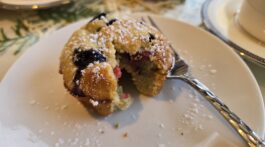
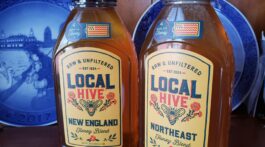
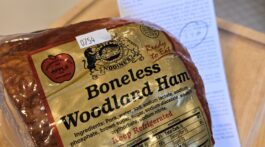
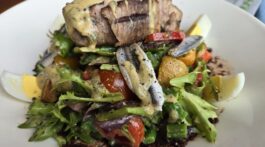
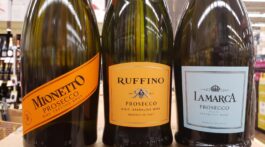
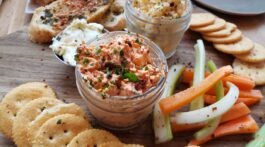



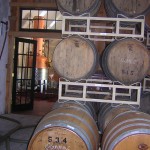
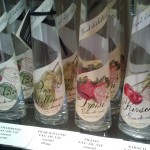
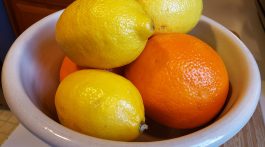
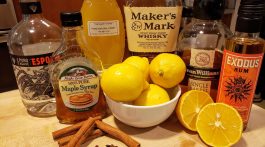
No Comment